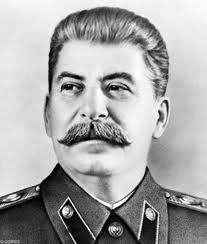Quotes
Quotes FAQ

Winston Churchill, Parliament Square, London © Sue Lowry & Magellan PR
March 1, 2009
Q. I am looking for the brief speech that Churchill made to the graduating class of, I believe, Oxford or Cambridge. Memory serves that the speech was simply “Never give up, Never give up, never give up.” Is this correct?
A. This is one of our most frequent quote requests. The speech was made 29 October 1941 to the boys at Harrow School. ” Never, never, in nothing great or small, large or petty, never give in except to convictions of honour and good sense. Never yield to force; never yield to the apparently overwhelming might of the enemy.” The full speech is contained in “The Unrelenting Struggle” (London: Cassell and Boston: Little Brown 1942, and is found on pages 274-76 of the English edition). It may also be found in The Complete Speeches of Winston S. Churchill, edited by Robert Rhodes James (NY: Bowker and London: Chelsea House 1974).
Q. President Kennedy, in presenting Churchill with honorary American citizenship, said, “He mobilized the English language and sent it into battle.” I have heard this line was said earlier. If so, by whom?
A. Edward R. Murrow, in his Columbia LP recording entitled “I Can Hear It Now” (and possibly elsewhere) actually coined that phrase. JFK borrowed it without attribution, but then again, Churchill often did the same with lines that appealed to him. The full quote occurs in Murrow’s introduction to his Churchill war speech excerpts, as Churchill takes office in 1940: “Now the hour had come for him to mobilize the English language, and send it into battle, a spearhead of hope for Britain and the world. We have joined together some of that Churchillian prose. It sustained. It lifted the hearts of an island of people when they stood alone.”
Q. Who was Lady Astor and what was her relationship with Churchill?
A. Nancy Witcher Langhorne Astor, Viscountess Astor, b.1879, first woman Member of Parliament (elected 1919, served until 1945) and wife of Waldorf Astor. She was an American, born in Greenwood, Virginia. You can find out more about her in an Encyclopedia.
Although a Conservative, like Churchill after 1924, she clashed often with him over Dominion Status for India and British relations with Nazi Germany and Soviet Russia. She was a strong backer of the appeasement policies of Prime Ministers Baldwin and Chamberlain. The famous exchange between them is apparently not apocryphal, as we had previously believed: “Winston, if I were married to you I’d put poison in your coffee”….”Nancy, if I were married to you I’d drink it.” This occurred during a weekend house party at Blenheim Palace in the early 1930s.
Another amusing encounter in the House of Commons is reported to have occurred as Churchill was orating about mankind, saying “Man” this and “Man” that. Every time he would mention “Man,” Lady Astor would interject: “…And Woman, Mr. Speaker…And Woman!” Finally Churchill is supposed to have exclaimed, “In this context, Mr. Speaker, the understanding is that Man EMBRACES Woman.” This did not improve his relations with the Noble Lady.
Q. What did Harry Hopkins say to President Roosevelt about Churchill?
A. He cabled Roosevelt in January 1941: “I cannot emphasise too strongly that he [WSC] is the one and only person over here with whom you need to have a full meeting of the minds”?
Q. What did Churchill say about Japanese aggression in the Far East in 1937?
A. In 1937, Churchill wrote a syndicated article on his views about Japanese aggression in the Far East and he declared that ‘China, as the years pass, is being eaten leaf by leaf like an artichoke. One province after another is being subjected…’
Q. How did Churchill recall 10 May 1940 when he was asked to form a government?
A. In Churchill’s Second World War he recalled the day. ‘In the splintering crash of this vast battle the quiet conversations we had had in Downing Street faded or fell back in ones mind. However, I remember being told Mr Chamberlain had gone, or was going, to see the King, and this was naturally to be expected. Presently a message arrived summoning me to the palace at 6 o’clock. It only takes two minutes to drive there from the admiralty along the Mall. Although I suppose the evening newspapers must have been full of the terrific news from the continent, nothing had been mentioned about the cabinet crisis. The public had not had time to take in what was happening either abroad or at home, and there was no crowd about the palace gates.
I was taken immediately to the King. His Majesty received me most graciously and bade me to sit down. He looked at me searchingly and quizzically for some moments, and then said, ‘I suppose you don’t know why I have sent for you?’ Adopting his mood, I replied, ‘Sir, I simply couldn’t imagine why.’ He laughed and said, ‘I want to ask you to form a government.’ I said I would certainly do so.’
Subscribe
WANT MORE?
Get the Churchill Bulletin delivered to your inbox once a month.




